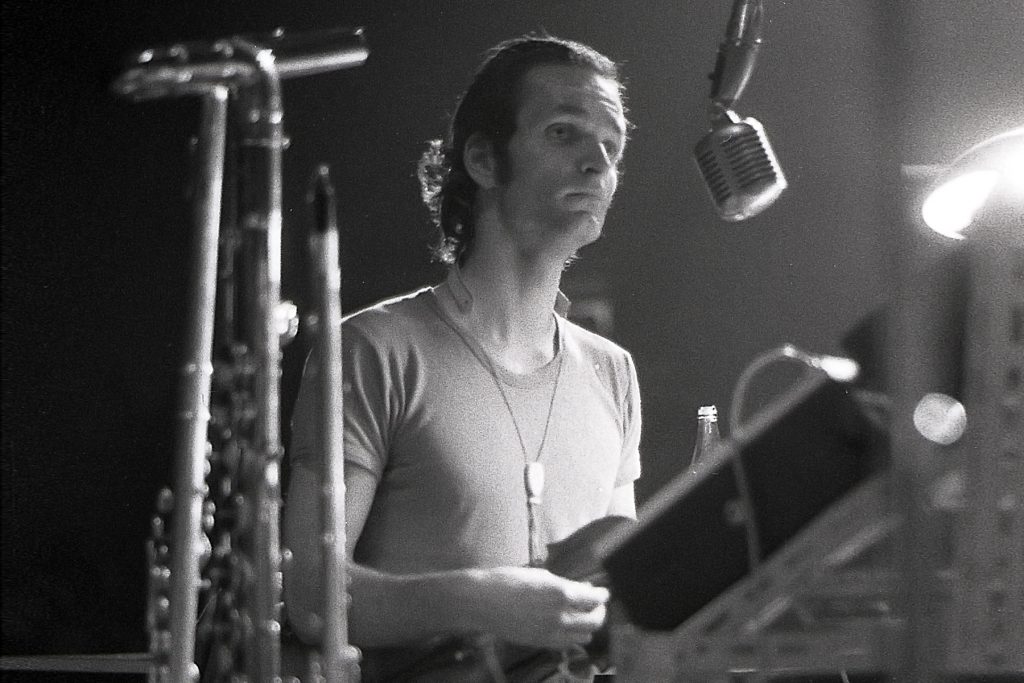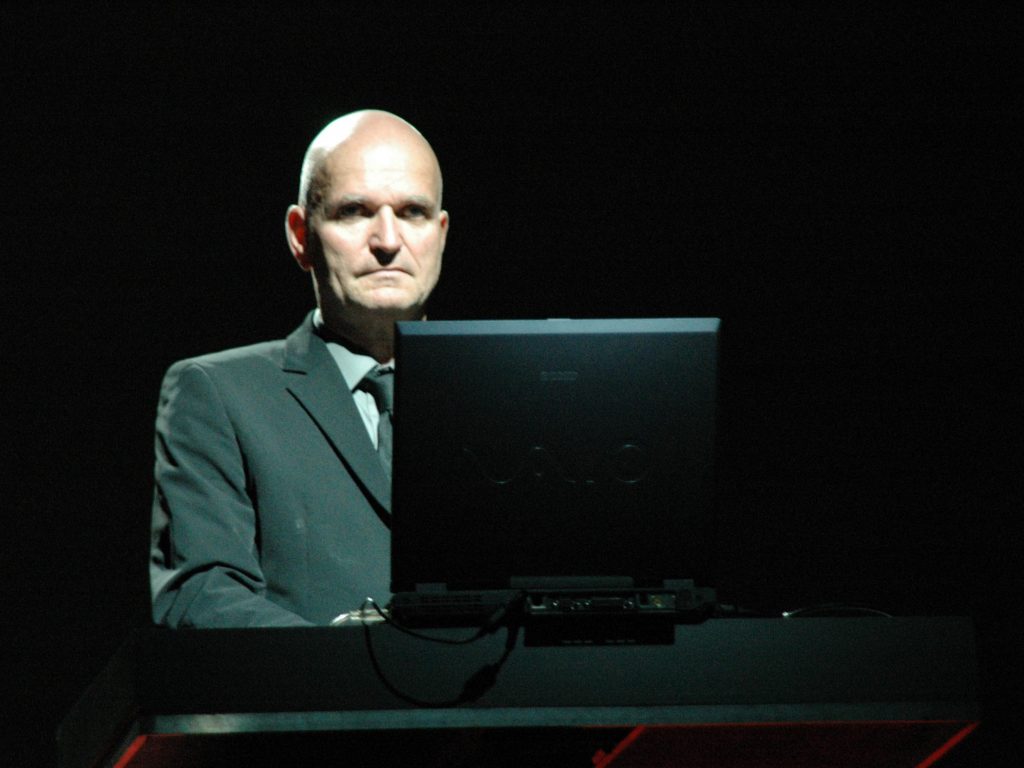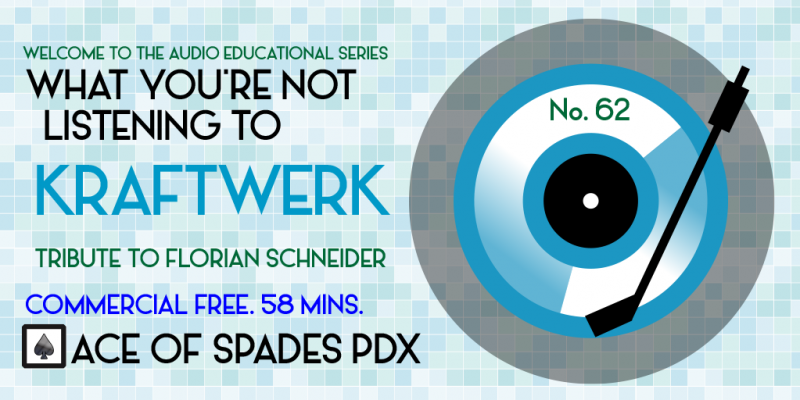Podcast: Play in new window | Download | Embed
The co-founder of electronic music pioneers and early Hip-Hop influence Kraftwerk passed away in April, but his death was not revealed until the first week of May. #electronica #kraftwerk #florianschneider #krautrock
The first half of May 2020 has not been kind to music innovators and pioneers. Earlier this month, we lost Phil May of Swinging London British R&B band The Pretty Things, Soul singer and label founder Betty Wright, R&B/Hip-Hop music producer Andre Harrell and as Leon Russell once called him, the undiluted Queen of Rock and Roll, Little Richard. It also was finally confirmed during this period we lost one of the co-founders of modern electronic music, Florian Schneider of Kraftwerk.
Why the latter passing took almost a month to confirm should not be of any surprise. Schneider, the son of an architect born in what was then called the French occupation zone of Germany in 1947, was notoriously shy and rarely gave interviews. As his fame grew with Kraftwerk, his interviews became ironically comic affairs, with him often taking the piss out of stardom by not taking his notoriety seriously at all, which seems awfully quaint in the age of Instagram.

Originally starting out playing the flute and the violin in a traditional, classically trained manner, he eventually found the scope of these instruments limiting. As electronic instruments were finally gaining not only respectability but portability and affordability, by the time of Kraftwerk’s fourth release, Autobahn, the band scored an unlikely world-wide hit with an edited version of the title track, even playing on the American television popular music program The Midnight Special on the same episode as middle-of-the-road artists Helen Reddy and Neil Sedaka.
“I had studied seriously up to a certain level, then I found it boring.”
Florian Schneider on how he went from the classical to electronic music
Some mainstream critics were far from kind; the British music press derided the avant-garde new-music German scene as “Krautrock”, which was actually born out of political protest and originally called kosmische Musik. Undaunted, Kraftwerk soldiered on and found fans in rockers David Bowie and Iggy Pop during their “Berlin” period, in electronic dance music cornerstone Giorgio Moroder and possibly most importantly, with Black youth in the inner cities of the United States.

Of the latter, according to pioneering rapper Queen Latifah, the early New York City Hip-Hop scene was very much influenced by Kraftwerk, with DJ’s, producers, rappers, breakers, poppers and lockers moving and grooving to a variety of the German band’s music, especially the track “Numbers” from 1981’s Computer World. By the way, those are Kraftwerk samples you hear the greatest early Hip Hop single ever, “Planet Rock” by Afrika Bambaataa and The Soul Sonic Force.
Schneider left the group in 2008, preferring to keep such a low profile it was actually rumored he had died in the middle part of the last decade, only to emerge in 2015 with an anti-pollution track and even wear clothes made of recyclable plastic in public. When I learned of his passing shortly after his 73rd birthday, it was almost as if it were another one of Schneider’s humorous jokes on the industry. I prefer not to think of him as gone, but as one online poster from YouTube so eloquently put it, “He’s just recharging his battery.”
First Part
- The Robots (Die Roboter), 1978, The Man-Machine
- Tour De France (Remix Francois), 1983, European single B-side
- The Telephone Call, 1987, Electric Cafe
- Dentaku, 1981, Japanese B-side to “Pocket Calculator”
Second Part
- Numbers, 1981, Computer World
- Trans-Europe Express, 1977, Trans-Europe Express
- The Voice of Energy/Antenna, 1975, Radio-Activity
Finale
- Autobahn (edit), 1974, Autobahn
Love to you all.
Ben “Daddy Ben Bear” Brown Jr.
Host, Producer, Webmaster, Audio Engineer, Researcher and Writer
“Copyright Disclaimer Under Section 107 of the Copyright Act 1976, allowance is made for ‘fair use’ for purposes such as criticism, comment, news reporting, teaching, scholarship, and research. Fair use is a use permitted by copyright statute that might otherwise be infringing. Non-profit, educational or personal use tips the balance in favor of fair use.”
